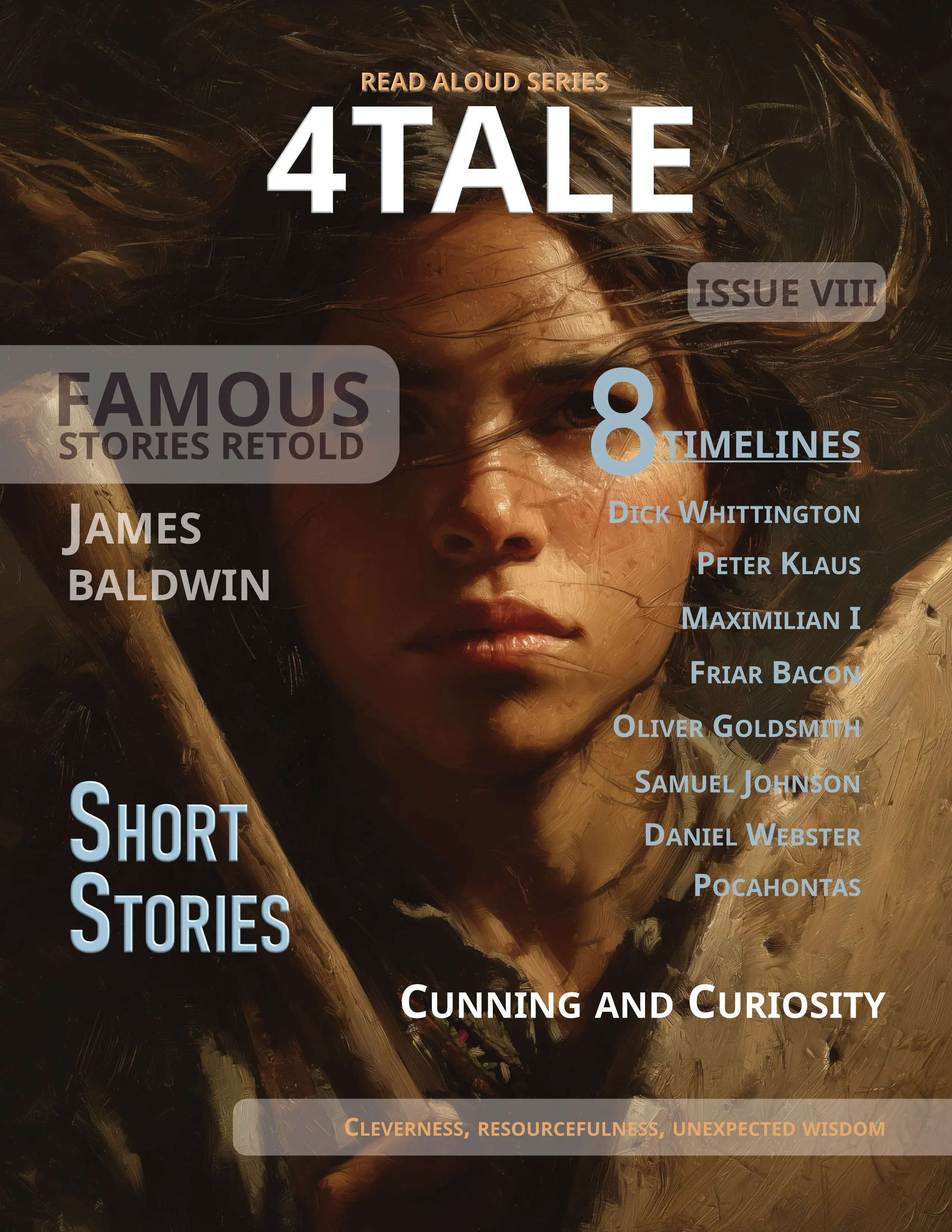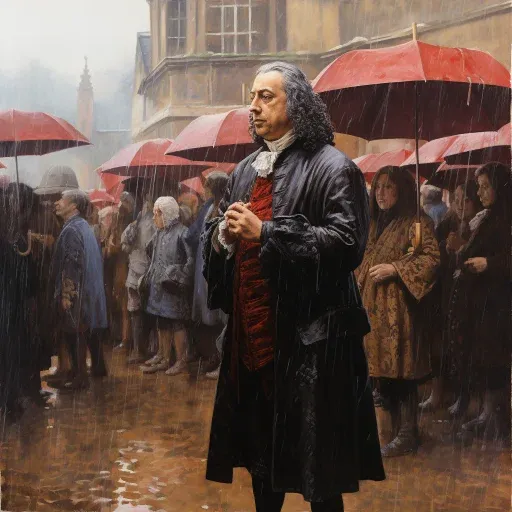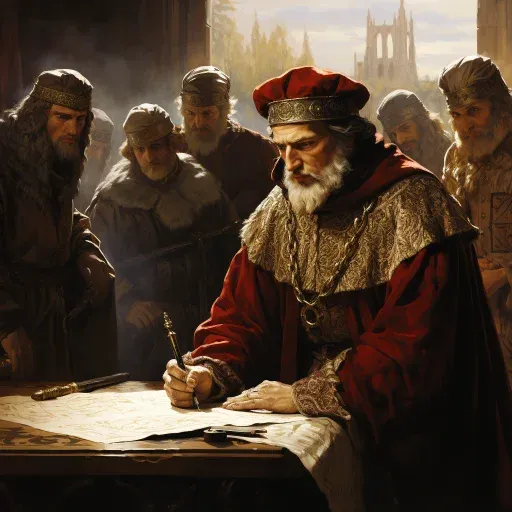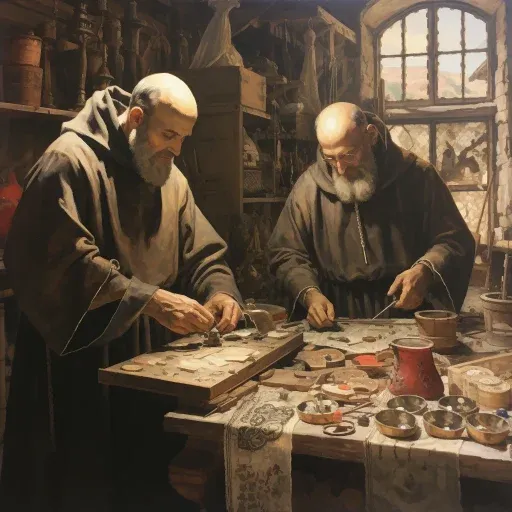BY JAMES BALDWIN
Webster and the Woodchuck
Famous Stories Retold: Story 12 of 30
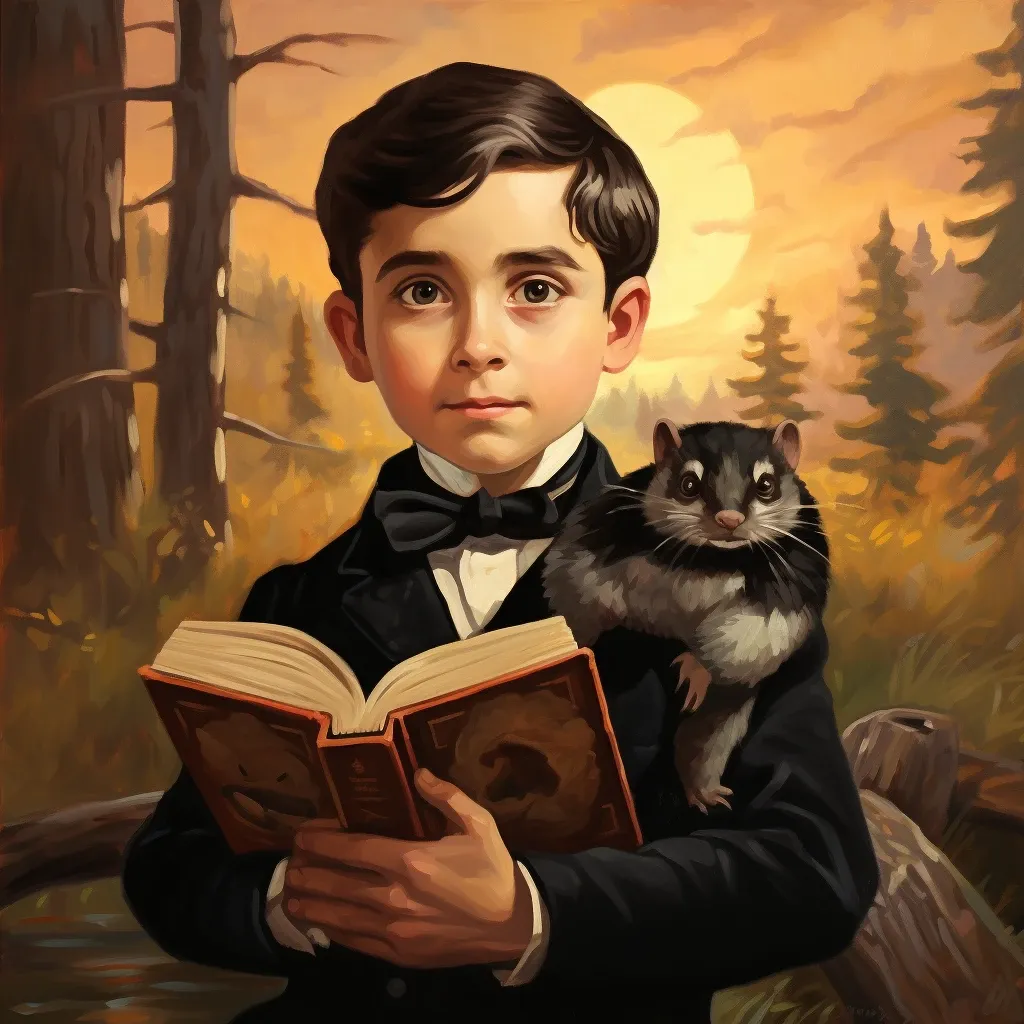
Heading

Daniel Webster’s Childhood: Daniel Webster, known for his oratory skills and statesmanship, grew up in New Hampshire, where he displayed a love for reading and nature.
Future Lawyer: This incident foreshadowed Webster's future as a lawyer and orator, as he successfully convinced his father, who acted as the judge, to release the woodchuck.
A good book we like, we explorers. That is our best amusement, and our best time killer
- Roald Amundsen, Explorer
Daniel Webster: Justice and the Woodchuck Case
Immerse yourself in the captivating saga of young Daniel Webster and a mischievous woodchuck, set amidst the rustic charm of New Hampshire hills. This narrative not only brings to life the innocence of childhood, but also underscores profound lessons of compassion and justice. A tale that echoes the timeless wisdom of the Bible, it imparts valuable insights into coexistence with nature. Traverse this journey with us as we uncover how a simple rural incident shaped the ethos of one of America's greatest statesmen. The story promises to leave you with thought-provoking takeaways and a renewed perspective on life’s simple, yet profound principles.
The Early Life of Daniel Webster
Born in the picturesque hills of New Hampshire, Daniel Webster was a unique child from the start. His jet black hair and dark, mesmerizing eyes set him apart physically, but it was his gentle heart and love for nature that truly distinguished him. Despite his small size and inability to help much on the farm, young Webster found joy in the woods and fields, befriending the harmless creatures that called them home.
The Love for Learning: Daniel Webster's Education
From a young age, Daniel Webster displayed an insatiable desire for knowledge. In a time when children's books were scarce, he sought out any reading material he could find, digesting them meticulously until he had memorized each line. His affinity for reading was so profound that neighbors, captivated by his oratory skills, would often stop by to listen to him read. This early exposure to literature laid the foundation for his deep understanding of law, nurtured by his father, a county court judge.
Dive Deeper 'Timeless Wisdom' Podcast
Video with Captions and Visualizer
The Troublesome Woodchuck: An Unwanted Visitor
One summer, a woodchuck took up residence near the Webster's family home, wreaking havoc in their garden. Undeterred by its stubbornness, Daniel and his elder brother, Ezekiel, made it their mission to catch the pesky creature. Their differing views on how to deal with the captured animal would soon lead to a unique trial that would reveal much about their characters and future paths.
The Debate Begins: Daniel and Ezekiel’s Differing Views
In the heartland of New Hampshire, the Webster boys, Daniel and Ezekiel, had quite a different approach to dealing with the woodchuck problem. Ezekiel, older and perhaps less tender-hearted than his younger brother, insisted on taking the life of the creature. He was adamant that the woodchuck, after all the harm it had done, deserved nothing less.
Daniel, on the other hand, displayed an exceptional trait of empathy and understanding. He pleaded for the life of the creature, arguing that it was merely trying to survive and had as much right to life as they did. This was the first sign of the persuasive oratory skills that would later become Daniel Webster's trademark. It was clear, even at this young age, that he had a unique ability to speak with compassion and conviction, striking a chord in both his brother and his father.

The Court of the Countryside: A Unique Trial
In an interesting twist of events, the boys' father, Mr. Webster, decided to hold a court to settle the dispute. This was not an ordinary court but a countryside courtroom, where matters of the farm were deliberated and decided. The boys were to act as lawyers, each arguing their case for or against the woodchuck.
Ezekiel, acting as the prosecutor, presented a strong case, highlighting the damage the woodchuck had inflicted on their crops and the time and effort they had expended in capturing it. Daniel, however, took a different approach. Instead of focusing on the harm done, he chose to highlight the woodchuck's right to life and liberty, pulling at the heartstrings of his makeshift jury.
The Verdict: A Lesson in Compassion and Justice
As the makeshift trial in the countryside court came to a close, the boys awaited their father's verdict. The judge, moved by Daniel's heartfelt pleading for the woodchuck's life, decided in favor of the defense. The woodchuck was to be released, and in this verdict, a valuable lesson in compassion and justice was imparted.
The impact of this event was far-reaching, shaping the character of young Daniel. Through his encounter with the woodchuck and the unique trial that ensued, Daniel learned the value of empathy, compassion, and justice - qualities that would later define his career and legacy.
Conclusion
In this heartwarming narrative, we've journeyed through the hills of New Hampshire, tracing the footsteps of a young Daniel Webster. We've witnessed his tender heart, his love for learning, and his encounter with the troublesome woodchuck. The memorable courtroom scenario that unfolded in the countryside offered us a unique perspective on justice and compassion. This tale leaves us pondering about the simplicity yet profundity of life principles, and the importance of cohabitation with nature's creatures. The young boy's ethos shaped by this incident echoes a timeless wisdom, impacting us all.

